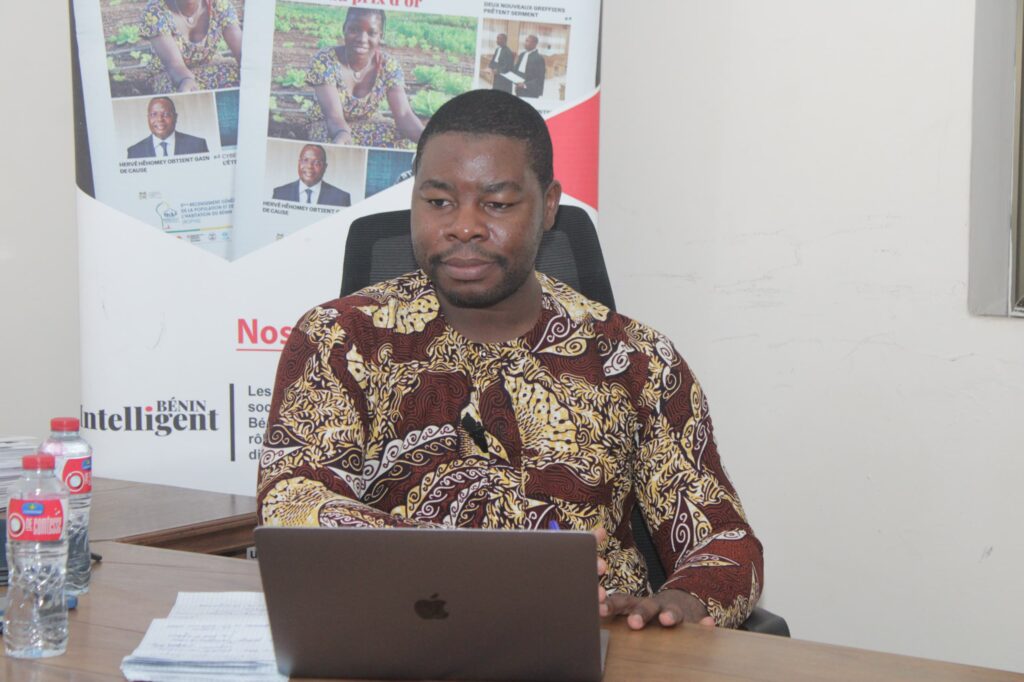In a workshop organized by the newspaper Bénin Intelligent, Michael Matongbada, head of the Sahel and coastal countries team at the Center for Civil Conflict (Civic) exchanged with media professionals on the theme : “Role of CSOs and media actors in the prevention of insecurity in Benin”. In this first issue, it addresses the issue of the treatment of security information by a journalist.
How can a general journalist address the issue of terrorism? ?
From what I read, I think it's already happening. When we take the question of insecurity for a general journalist who talks about a lot of facts, we can see how the phenomenon affects access to health care in certain areas today. We can see how insecurity is experienced by women or girls. We have people displaced from certain countries to the north of Benin, and from the north towards more secure areas. These displaced people are either in host families or not. Once you leave home, the way of living is different. So we can wonder about how women or girls live when they leave home. How do they live this new life?. And is this taken into account by the CSOs who work on sexual reproductive health issues?. Because in the Sahel, when populations move, they are vulnerable and there are new challenges arising. These populations need financial resources. We realize that sometimes indigenous populations exploit this vulnerability of these people who have moved. So these are things that we can analyze. Difficulties encountered which are not always taken into account very quickly by the authorities. For example, children's access to school. In a country whose name I don't know, the movement of populations from one area to another, during the holidays meant that at the start of the school year the schools found themselves with more students. And there were very few classrooms. The area authorities did not take into account travel during the holidays. And at the start of the school year we found ourselves with a lot of children registered. So these are things that a journalist can analyze. What are the challenges of these trips on the education of children and already alert to say the next school year, since there is movement, we risk having very few rooms. It’s already advocacy. We can even go see the MPs to find out what their understanding of the phenomenon is.. How is that at the level of laws, everything that is voted on at the assembly, how this can impact and take into account the protection needs of civilian populations.
When there is this insecurity, inevitably there will be a lot of CSO actions in northern Benin. This also has implications. There will be more jobs created. But we must be careful that when there is this increase, that there are no other setbacks on the populations. May this not further harm the population, that doesn't make her dependent. Because these are the situations we experience in the Sahel. When NGOs leave, a whole number who were employed are no longer employed. There are plenty of populations who were on assistance and who no longer have it. And there has not been a process of disengagement or transition from these situations of assistance to a situation where they are no longer assisted.. So these are reflections where we can cross insecurity with several areas and alert decision-makers.
How to publish without falling into the apology of terrorism ?
I remember when the situation started in Mali, This was one of the questions we debated for a long time.. Because sometimes when the media want to publish, we always want the sensational to be the first to be read. But whether we like it or not, there is necessarily a need for incident monitoring. It's important to do it. There are structures that do this. This is what happened over time, the causes and others. Without this, we really can't make decisions. So this need for monitoring, it is important that the media and specialized structures do so. In this incident tracking, there is a rigorous need in the way of doing things. It’s because we are in Cotonou, we received information via WhatsApp, we share and then we realize it’s false information. You must be rigorous in verifying sources before publishing the information, especially at a time when misinformation is on the rise. It's not just about following up, but to understand the causes. Because it is only by understanding or analyzing the causes of incidents that we can better alert or inform decision-makers. Si c’est juste de dire ” Trois civils tués au nord du Bénin” et on s’arrête là et ne pas essayer de comprendre les causes, we just risk passing on information. It is also important to analyze the impact of these incidents on political life, social, economic, etc. These are elements to avoid falling into the apology of terrorism. Also the photos, videos, as soon as there is an incident everyone wants to film and we want to be the first to share on all channels to say this is how it happened. In fact, we're making a bit of an apology here. Because that's what these groups want. They want to sow terror. When they carry out the attack and the videos exist, it is to be able to sow terror and show that they have the capacity to act and to weaken the mentality and combativeness of the security defense forces.. I think these are things we should avoid doing and rely on incident monitoring to inform decision-making.. That this monitoring be rigorous enough, in terms of verifying information sources.
Damien TOLOMISSI

